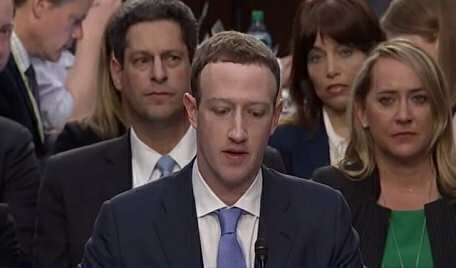Editor’s Note: This series of blog posts first appeared on the Volokh Conspiracy web site, and the posts have been edited for continuity purposes.
When the Senate questioned Facebook’s role in privacy and business matters earlier in April, it could do no better than to rediscover the forgotten wisdom of William Howard Taft. For the question of how to curb monopoly power was the central question in the 1912 presidential campaign.
 All three candidates wanted to curb the trusts, but they disagreed about the best regulatory response. Taft, the Republican incumbent, was a judicial president who wanted to use antitrust law to curb the political and economic power of monopolists like J.P. Morgan, the Mark Zuckerberg of his day. (Taft brought more antitrust suits in a single term than his predecessor, Theodore Roosevelt, had brought in nearly two.) The Hamiltonian Roosevelt, championing "the New Nationalism" called for the creation of a federal bureau of corporations to regulate the giant trusts. And the Jeffersonian Woodrow Wilson, championing the "New Freedom," relied on his economic advisor Louis Brandeis's libertarian critique of "the curse of bigness" to argue for breaking up the trusts, or preventing them from forming in the first place.
All three candidates wanted to curb the trusts, but they disagreed about the best regulatory response. Taft, the Republican incumbent, was a judicial president who wanted to use antitrust law to curb the political and economic power of monopolists like J.P. Morgan, the Mark Zuckerberg of his day. (Taft brought more antitrust suits in a single term than his predecessor, Theodore Roosevelt, had brought in nearly two.) The Hamiltonian Roosevelt, championing "the New Nationalism" called for the creation of a federal bureau of corporations to regulate the giant trusts. And the Jeffersonian Woodrow Wilson, championing the "New Freedom," relied on his economic advisor Louis Brandeis's libertarian critique of "the curse of bigness" to argue for breaking up the trusts, or preventing them from forming in the first place.
On Capitol Hill, the neo-Wilsonians are led by Elizabeth Warren, who gave an speech in 2016 quoting Brandeis's warning that the "concentration of economic power" meant that "private corporations are sometimes able to dominate the state." Neo-Wilsonians support breaking up Facebook on the grounds that, as Warren put it, "Left unchecked, concentration will destroy more small companies and start-ups. Left unchecked, concentration will suck the last vestiges of economic security out of the middle class. Left unchecked, concentration will pervert our democracy into one more rigged game."
The leading Brandeisian think tank, Barry Lynn and Matt Stoller's Open Markets Institute, propose a range of remedies the Federal Trade Commission could impose to reign in Facebook's monopoly power, from spinning off Facebook's ad network to requiring transparency of all political communications on Facebook ("Sunlight is the best disinfectant") to passing European style data protection regulations requiring user consent before data can be shared. But although some of these remedies have some traction among libertarians as well as civil libertarians, there is little appetite in Congress for breaking up the platforms.
The vision of a European-style federal privacy law would be the culmination of Theodore Roosevelt's vision of big government regulatory bodies empowered to oversee big corporations. But although Mark Zuckerberg has more or less asked Congress to regulate Facebook ("The question isn't, 'Should there be regulation or shouldn't there be,'" he told Wired. "It's 'How do you do it?'"), there has historically in Congress been no majority support for federal privacy regulation along the European scale: conservatives and libertarians who fear big government surveillance are eager to roll back rather than to expand government regulations of the private sector.
In practice, therefore, the remedy with the greatest political support in Congress may be the Taftian approach: more vigorous antitrust regulation. That would mean, to start, establishing whether Facebook violated its 2011 consent decree with the Federal Trade Commission and pursing fines against individuals who encouraged the violations.
During the 2016 campaign, both Donald Trump and Hillary Clinton gave speeches talking about the need for vigorous antitrust enforcement. In that sense, both candidates were wisely channeling the wisdom of our most judicial president, William Howard Taft.
Jeffrey Rosen is President and CEO of the National Constitution Center, professor of law at the George Washington University Law School, and a contributing editor of The Atlantic.






